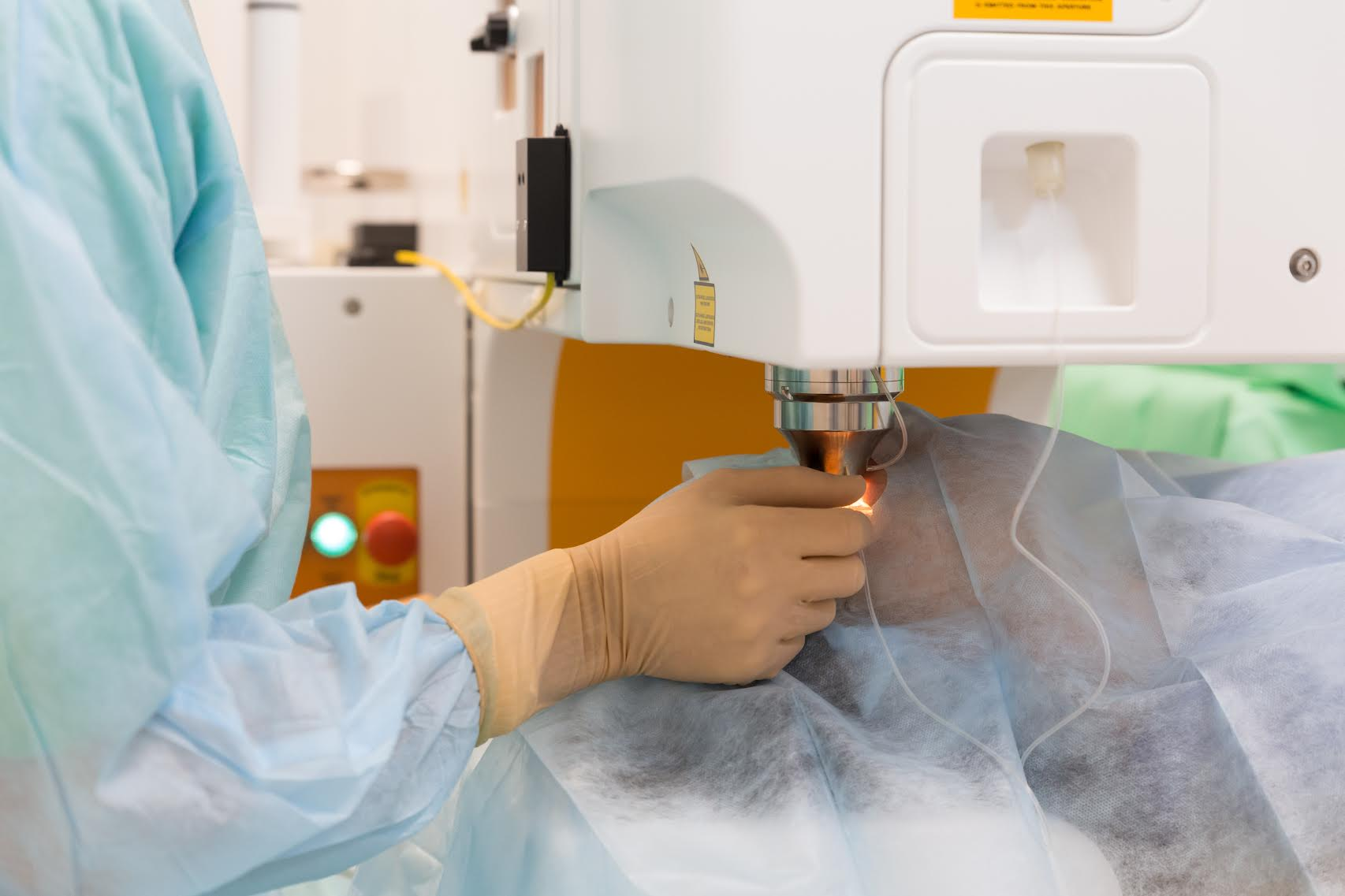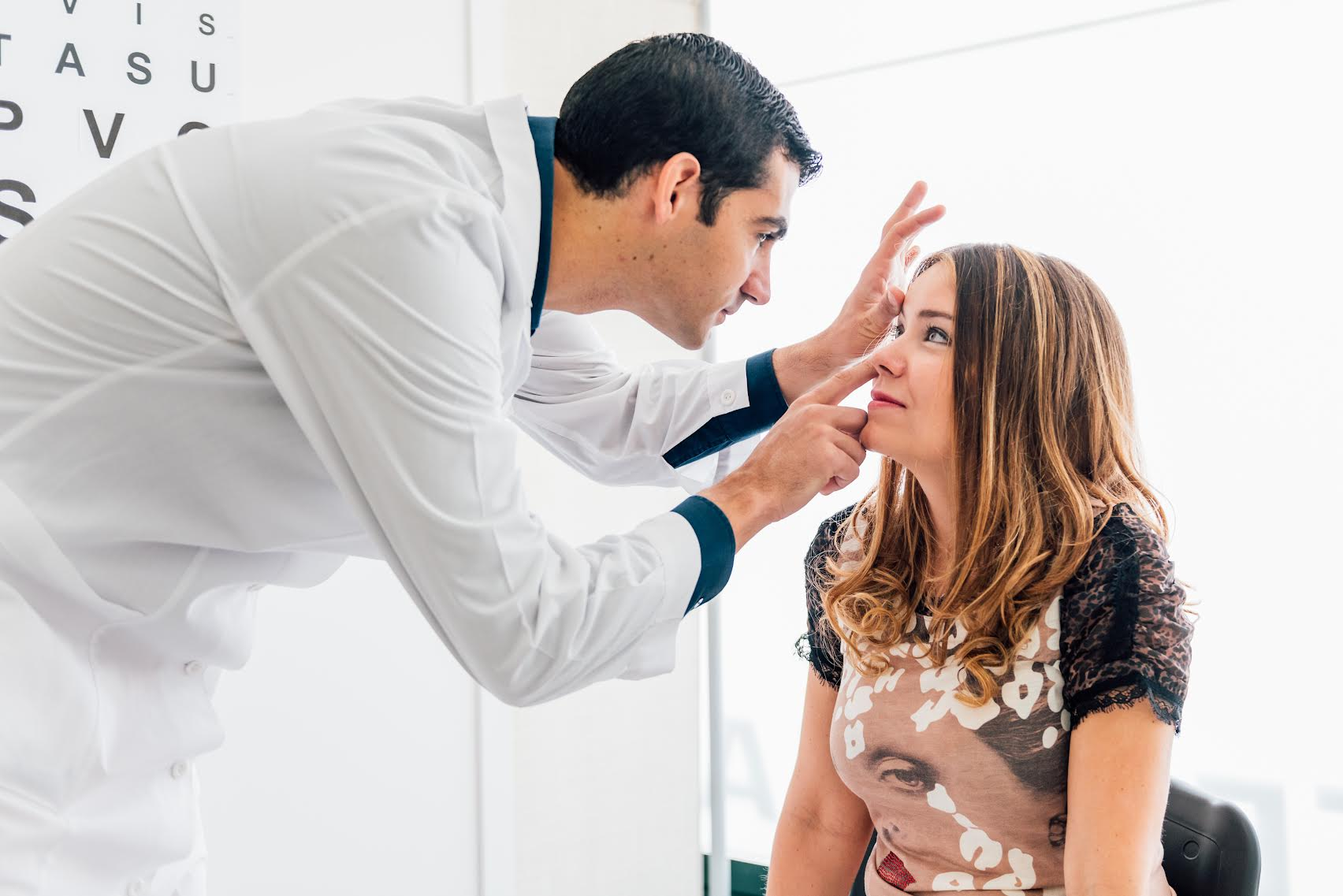Giving Back Where It Matters Most: Win FREE LASIK – 3 Winners, 3 StoriesEnter Today!
Blog
Top 12 Questions to Ask Your LASIK Surgeon

LASIK eye surgery is one of the most widely performed types of refractive surgery in the world. It can be exceptionally effective in treating nearsightedness, farsightedness, and astigmatism, which are eye conditions caused by refractive errors. This is achieved by removing small pieces of tissue from certain parts of your cornea.
Questions to Ask Before LASIK
Before committing to LASIK surgery, you should ask your doctor or surgeon a few questions to get an overview of what to expect.
1. Who Will Be Performing the Surgery?
LASIK eye surgery centers may have several surgeons of varying skills and experience that perform their procedures. Before committing to treatment, you must ascertain who will be performing the surgery so that you can inquire about their training, experience, and success rates to ensure you get the best treatment possible.
2. What Should I Expect During LASIK Surgery?
LASIK patients should have a broad overview as well as a detailed understanding of LASIK procedures. Before starting the process to get treatment, discuss the entire process with your surgeon from start to finish.
Your surgeon should be able to explain the exact treatment procedure, what to expect from recovery, and how long everything will take in detail, as well as answer any questions you may have about possible risks or side effects.
Treatment typically takes about four minutes per eye and should be pain-free.
3. How Many Patients Need Retreatment?
Finding out what your surgeon’s success rates are for LASIK and how many patients had to wear glasses or contact lenses again or undergo retreatment can help you determine whether or not the surgeon is the right fit for you.
5. Is the Surgery I’m Getting Really LASIK?
Many lower-quality centers may advertise laser vision correction, leading patients to assume they’re undergoing LASIK when they’re actually being treated with a completely different procedure.
These alternative procedures may have different success rates, recovery times, and side effects, which all could cause disappointment and confusion when things don’t go as expected.
6. Who Will Be Deciding if I Need Lasik?
Your LASIK surgeon should be the person conducting your LASIK consultation as well. Having someone who isn’t trained in conducting the procedure or determining whether or not you need surgery can cause confusion, false diagnoses, or wrong recommendations.
Learn more about LASIK and if it’s the right fit for you.
7. How Much Will Lasik Cost?
The cost of LASIK surgery will depend on the eye center you’re getting treatment from and the extent of the refractive error that needs to be corrected. Discussing the complete costs of LASIK surgery and recovery should be a straightforward process and should not include any hidden costs or fees.
8. What Sort of Results Can I Expect?
Only accept treatment from a surgeon who has performed LASIK surgery several times before. Before beginning the treatment process, it’s essential you enquire about and ascertain the surgeon’s success rates and how many patients needed retreatment after their first procedure.
9. What Are the Risks of the Surgery?
Some of the side effects or risks after a LASIK procedure include light sensitivity, blurry vision, and mild discomfort.
10. Do Some Medical Conditions Exclude Me from Getting Lasik?
Some conditions like diabetes or prior eye injuries or diseases can exclude you from getting corrective surgery with a LASIK procedure. To find out if you qualify for LASIK, you can take a LASIK self-test first.
11. What Should I Expect After Surgery?

Recovery shouldn’t take longer than a few days, although you may experience dry eyes and need to use eye drops to keep them lubricated and comfortable. It may take several months to experience the full benefits of the treatment, however.
12. How Long Does Recovery Take?
Recovery time after laser eye surgery shouldn’t extend for more than a few days. You may have to wait several months to get the full treatment benefit of the surgery.
Reasons to Take a LASIK Self Test First
Before committing to a vision correction procedure, you should take or schedule a free LASIK self-test first. The vision evaluation can help you determine whether or not you need LASIK surgery or require a different procedure entirely. Once you’ve determined that you’re a good candidate for LASIK, you can schedule an appointment online and take the first steps towards clearer vision.


